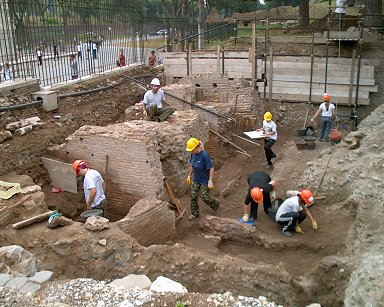You’ve heard the debate about tank versus tankless water heaters for years but do you understand the arguments?
If you are like many homeowners or first-time home buyers looking to get into the real estate game, you may be familiar with the concept but have no idea what the pros and cons of tank vs. tankless water heaters really are.
Since there are so many individually-based details to take into account when deciding which type will work for you, the following discussion touches on the highlights (or drawbacks) of each style in an effort to get you closer to your perfect choice.
Tank Storage Heaters
Tank storage heaters do just that: store gallons and gallons of water that is constantly warmed so it’s ready when you turn on the tap. Because of its nature, there are several immediately obvious cons:
- Size: These are very bulky and would never be considered space savers. Indeed, they need to be stored in their own closets or otherwise dedicated area.
- Leaks and Expirations: Whenever there is water, there is the potential for a leak. Since the tanks are constantly filled and replenished, they tend to leak over time. And that “time” has its limits: the overall life expectancy of a storage tank is approximately 10-15 years.
- Internal Issues: Since the water is just sitting in the tank, over time, water with heavy sediment and minerals (or “hard” water) causes a buildup of sediment deposits that must be flushed out. In addition to this being a cumbersome and messy chore when done improperly, if you are not careful when you flush the tank, you can also cause the heating element to burn out and say bye-bye to any hot water until you replace it…which is yet another challenge if the currently installed element is rusted or otherwise stuck in the tank!
- Energy Inefficiency: Because the water is stored and continually heated, there is no way to shut off the heating without completely disabling the tank. This means that while you are at work during the day or on vacation, your tank is constantly running…this really adds up over time and contributes to the overall energy-inefficiency of a tank storage water heater, which can run between 45-65%.
Notwithstanding the above-mentioned cons, perhaps the most inconvenient aspect of a tank storage heater is the fact that although the tank is continually refilling, there is a finite amount of hot water.

Consider the way it works: water that is sitting in the tank is already heated to a certain temperature. However, once that water is used, even though new water is cycling into the tank, it is coming in cold and hasn’t had a chance to heat up yet (think of using a pot of boiling water and then refilling the pot – that water isn’t immediately hot and requires some time on the burner to heat back up).
This means that once the original tank of water is exhausted, you need to wait upwards of 25-30 minutes (depending on your tank’s capacity) before you have hot water again. Annoying? Yes. Deal breaking? Not necessarily.
If your storage tank only needs to accommodate you (and no other household inhabitants), even with running all of your water-pulling appliances simultaneously (washing machine, dishwasher, etc.) you may never encounter a problem with the hot water. However, if you need to spread that heat around a bit (to family members, for example), you may be better served by a tankless heater.
Tankless Water Heaters
With respect to many of the tank storage heater’s “cons,” there is an equally weighted “pro” in favor of the tankless heater:
- Size: Literally a tiny box, these can go almost anywhere and operate just as well regardless of whether they are indoors or outside.
- Limitations: These beauties won’t leak or expire as quickly as their tank counterparts, lasting nearly 20 years… and they come with 5-10 year warranties (depending on the brand and model).
- Super speed: Likened to a tablet’s “instant on” function (an improvement over the lag time you experience with a laptop or desktop computer), tankless units are commonly referred to as “On Demand” or “Instant Water Heaters.”
- Energy Efficiency: Since these only draw, funnel and heat water as you need it, they are not constantly running. This quality is largely responsible for the tankless heater’s energy efficiency factor in the range of 84-90%!
- Super savings: Because many large tankless heaters provide up to 6.0 gallons per minute of endless hot water, with their 87% efficiency (on average), you can save upwards of 60% on energy!
In the same way that tank storage heaters have a limited supply of hot water, tankless heaters have an “endless” supply. Although you could run into issues if you have internal malfunctions of the tankless heater, you will never run out for the same reasons you would in a tank storage heater.
If you decide a tankless is the way to go (for you), which one you need also depends on water temperature needed, climate and intended uses.
For larger houses or heaters that are intended to service the whole house, go with an indoor tankless that supplies a minimum of 6.0 gallons per minute. You also have options of “point of use” application heaters when you only need to heat water servicing a single shower, bathroom or kitchen sink.
As always, the success or failure of your water heater ventures will largely depend on the quality of product you purchase and the skill of your installer. What are some other considerations you have used in making your decision?
The Home Depot® is the world’s largest home improvement retailer, offering a wide selection of kitchen appliances, including all styles of refrigerators and a wide range of dishwasher models. Visit HomeDepot.com to learn more.

















